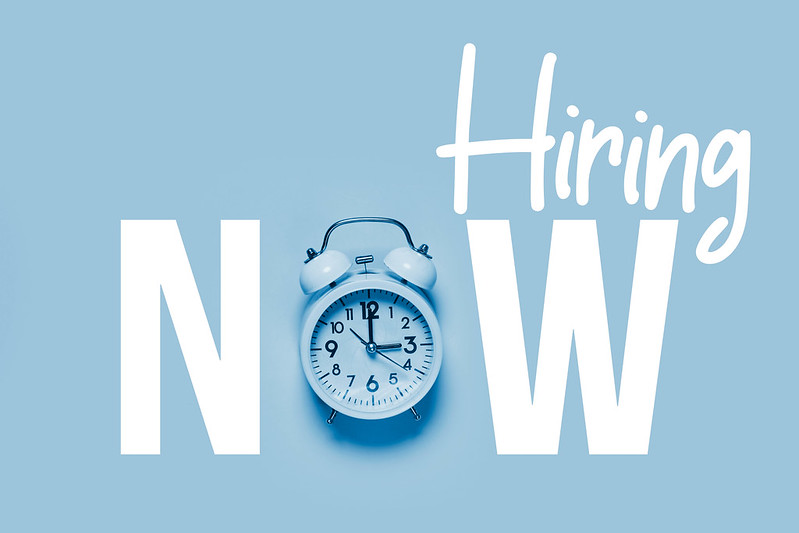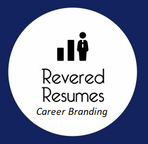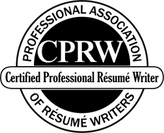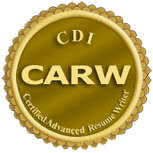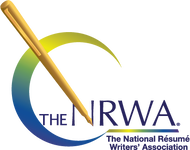|
The later part of 2019 and the whole of 2020 were completely disrupted by the COVID-19 pandemic, with the labor markets taking the brunt of the blow. Millions lost their jobs or were furloughed. An equal number of workers had to regulate their working hours and settings as offices were forced to close, and work from home became the norm for most industries.
Many other professionals deemed essential continued to work in medical facilities, essential services such as groceries, warehouses, and janitorial pulled on but under stringent new protocols to reduce the spread of the novel coronavirus. Now, with the ferocity of the virus easing across the globe, people are facing new challenges. While the pandemic accelerated existing trends in remote work, ecommerce, and automation, more workers and professionals find the need to switch occupations. They are struggling to keep pace with the changing career demands and choices. If you have recently lost your job due to the pandemic or contemplating a career change for other reasons, you must move carefully. It is evident that you will be thinking about a career that guarantees job security and a successful future. While uncertainty still looms large, what is clear is that in the post-coronavirus world, you must make your choices carefully so that you don’t have to go job-hopping again and again. The following careers can be the best option to set you on a secure path beyond the pandemic. At the same time, it is important to note that these predictions may keep changing as the situation continues to unfold and achieve some level of stability. Remote Work Facilitator Managing teams became a major headache for many corporate executives during the pandemic as they had to work from home almost overnight. This was an alien practice but is now commonly accepted. Remote work issues, however, keep popping up. Some companies have created the post of remote work facilitators or work from home management experts. They are tasked with keeping remote workers and in-office workers on the same page. The aim is to prevent the creation of a two-tier class system. As a remote work facilitator, you will be required to provide all your work-from-home colleagues with the tools and technology, software systems, furniture, and fixtures they need to ensure a smooth and hassle-free experience. Counselor For Dedicated Fitness It is not uncommon for many of us to discover layer upon layer of extra muscles and fat packed around our tummy. You can blame it on the pandemic, and no one will dispute your words. However, you just can’t sit there are wish that those extra pounds will vanish. A preventive and predictive approach is needed. And that’s why you need a counselor. A counselor for dedicated fitness may not seem like an attractive job title. But there is a massive demand for such professionals. As a counselor, your job is to keep the staff motivated and ensure they indulge in regular exercise at home and maybe even for a few minutes in the office. The thought of a fitness professional urging a worker to finish one more lap or do a couple of more pushups may seem out of place. But in many organizations, it is happening. There is also a huge demand for mental health professionals. There are many cases of anxiety, stress, depression, work-specific burnout, and loneliness affecting workers post-COVID19. A career as a mental health counselor can be a great option, especially if you are a fitness freak yourself. We might have left the pandemic behind. However, there will be some scars that must be healed through compassion and counseling. Creative Workplace Designer Office infrastructure and architecture have been undergoing dramatic changes post the COVID-19 pandemic. Organizations are focused on redesigning their real estate as well as interiors with the employees’ well-being in mind. Human-centered designs are making their presence felt heavily in most workplaces. This has led to a vast demand for designing professionals, especially those specializing in office design. The new post-pandemic office has to incorporate several things to ensure compliance with regulations and mandates. The office must be designed for distancing rules, the number of people working together at one time, and so on. The demand for a creative workplace designer is expected to increase in the coming years as offices move to make their workplace ready to deal with such constraints in the future. Advanced Tech Advisor The pandemic saw most people embrace technology with absolute ease. As they were confined to their homes and physical meetings coming to a grinding halt, they took to the virtual world with a vengeance. Digital and tech-based activities surged over the outbreak. Consumers felt at home as they explored the delightful world of virtual reality (VR), augmented reality (AR), and mixed reality (MR). The uptick in mobile usage, and everyone being online more, has resulted in consumers using Extended Reality across verticals. Consuming digital entertainment and participating in social VR and AR has become second nature even to the less tech-savvy during the pandemic. With the demand for tech-driven entertainment soaring, you can explore the opportunity to become a tech consultant or advisor for individuals and organizations. Workplace collaborations are also happening at a brisk pace. So, there are opportunities galore if you are willing to take the plunge. Human-Machine Coordination Professional Pandemic or no pandemic, there is no stopping the rising presence of robots in the workplace. However, the transition from human collaboration to the human-machine association may be hard to achieve for some organizations. Professionals trained in advanced technology such as Artificial Intelligence and Machine Learning will be in demand in organizations that want to move with the times and be seen as tech-friendly. Openings for unique roles such as robot technicians are growing at a rapid pace. Supply Chain Management Expert The pandemic saw consumers suffering from an extreme shortage of essentials across the world. Even in developed countries, the sudden and extended lockdown saw people scramming for food when they got the opportunity. During the pandemic, we have witnessed how deeply the supply chain and logistic industry affect our daily lives from close quarters. Post-pandemic, the supply chain management industry is experiencing major growth. If you have some experience in supply chain management at any level, this is the best time to get involved. You can work as a procurement analyst, logistics consultant, project manager, distribution expert, etc. If you are passionate about dealing with logistics and love challenges, you can prepare for a career in the supply chain management industry. Post-COVID, the industry has learned some important lessons and aims to reduce the roadblocks and hurdles and achieve greater efficiency. Social Welfare Professional The pandemic has left many people distressed physically, financially, and emotionally. They have overcome the most challenging part of beating the pandemic and surviving the toughest times. Now they need support in the form of counseling and advice for picking up their lives and starting afresh. It is not going to be easy. While family, friends, colleagues, employers, and others can definitely play a role in their rehabilitation, they can do better with professional help. As a social welfare professional, you can help them recover faster from their trauma and get their life back on track through one-to-one counseling. Conclusion The pandemic has wrought havoc on a vast majority of people across the globe. Now that we have put those times behind us, the focus should be on getting life back on track as quickly and smoothly as possible. The roles mentioned above are among those most likely to help you stage an early recovery. There will be many other roles that will emerge in the changing world post-pandemic. Most of them will pertain to the health, wellness, and safety sectors. It is practical to expect a tremendous increase in the demand for professionals in the construction, medicine, and health sectors. With homes being upgraded to accommodate work-from-home norms, the demand for professionals in the construction and maintenance industry will also increase in the future. You may believe that in a world of social media and online applications that a resume is not necessary. This article will offer a number of ways a resume is beneficial to your job search, all of which are designed to help you succeed in your job search. We’ll review the importance of customization, best resume format, and the various resume sections you need to include, to name a few. Let’s get started with our review of the key resume tips you need to keep in mind when creating yours.
1. A resume is a marketing tool. The sad truth is that most people do not write particularly well. Make sure that your resume is impeccably written, and make sure it stands out. A well-constructed resume conveys that you’re an organized person. Concise resume language gives the feeling that you’re a no-nonsense individual who gets right to the point. A great resume can convince a hiring manager that you have the background that will be an asset to the company and can compel them to contact you for an interview. 2. It helps the hiring manager decide that you have the necessary skills and experiences. A well-written, concise resume does the job of quickly telling the hiring manager that you’re the answer to their problems. When you’re writing your resume, be sure to use clear, succinct language, and focus on your achievements (especially the ones that are quantifiable), rather than on your job duties or tasks. One of the biggest resume tips you can keep in mind is this: the purpose of the resume is to sell you, and what you can do to help a company succeed. The purpose of the resume is to not catalog all of your duties and tasks from the past. 3. Customization is key. A question I’m frequently asked is whether or not it’s necessary to customize the resume for each application. My answer is always a resounding YES. This is one the key resume tips! You have only about six seconds to impress the reader, so be sure that your resume speaks to exactly what the company is seeking. You do this by studying the job description and optimizing your resume with relevant keywords. 4. Your resume helps with your personal branding. A resume is a marketing document that you craft to sell yourself. But in addition to that, it is also a component of your brand. You want to ensure that your resume conveys the key messages of your brand; that is, what your strengths are, what you can deliver on, and what you’re passionate about. 5. Add a little humanity and originality. Let’s face it, most resumes read pretty much the same, and most of them are boring and sterile. How many resumes for a PR Director role can someone read before they all begin to blur together? Every single applicant is going to say they’re expert at media relations and that they’ve overseen a team of communications professionals. Say something different and say something that makes you sound like an actual person and not a machine. Here’s one of my key resume tips: Instead of writing something like “Crisis communications expert who maximizes brand potential via various channels” in the Summary section of your resume, try “I don’t put out fires. I start them. I ignite excitement and engagement among clients. When something inevitably explodes, I add another log to the fire.” A resume remains one of the foundational tools in the job seeker’s toolkit. Hiring managers and recruiters still want resumes, and they want them to be easy to read and to quickly answer the key questions they have. A good resume is one that benefits both the hiring manager and the job seeker; hopefully, the resume tips offered here will put you on the path to success with creating yours! Something unusual is happening in the job market. Last September, more than four million Americans quit their jobs, according to statistics recently released by the U.S. Labor Department. This happened at a time when there were more than 10 million job openings.
Some call the “Great Resignation” a labor shortage. Others call it a wage shortage. We call it an opportunity. With so many openings, and a high demand for labor, there has probably never been a better time to be job hunting. If you’re going to be job hunting, then you need to have a powerful resume. Whether you’re looking to change jobs, seek a promotion within your current organization, or even change industries it’s a great time to dust off that resume and give it a new polish. Aside from it being a “worker’s market,” here are a few other reasons why now is the best time to update your resume. Beat the Automation Game Automated HR systems in recent years has made having a perfect resume more necessary than ever before. Applicant Tracking Systems (ATS) help recruiters by organizing and pre-screening resumes. They essentially look for keywords in each resume a company receives for a position and ranks it against the job posting, usually using a proprietary algorithm. While ATS systems save recruiters a ton of time, they don’t do any favors for candidates. If your resume doesn’t have the right keywords, you’ll never even get your foot in the door, much less an interview. As such, it’s important to update your resume to make sure it reflects not only the jobs you want, but that it includes important industry keywords relevant to those jobs. Stand Out Against Competition Getting your resume past the algorithms is just the first step. Your resume also needs to stand out against the competition. That means a couple of things. At the most basic, your resume needs to be spotless: no typos, no punctuation errors, no grammatical mistakes. But equally important, your resume needs to be relevant to the position you’re applying for, and not only in terms of the keywords. According to Indeed.com, hiring managers only spend six to seven seconds looking at a resume on average. That means your resume needs to capture their attention extremely fast. Position Yourself for the Future Resumes need to not only show where you’ve been professionally, but they need to reflect where you want to go in the future. What’s more, the job market always follows business trends, which means some newer industries will grow in the near future while others will shrink. For example, jobs in data science, artificial intelligence, and IT have been growing very fast over the past several years. But five to ten years ago, these industries were significantly smaller. If you haven’t been in the job market for a while, you definitely will want your resume to show how your skillsets can contribute to these burgeoning industries. Want more help crafting a winning resume? We can help. Check out our wide range of resume writing packages to get high-quality professional resume writing services. |
Categories
All
Archives
December 2023
|
HOURSM-F: 9am - 5pm
|
|



